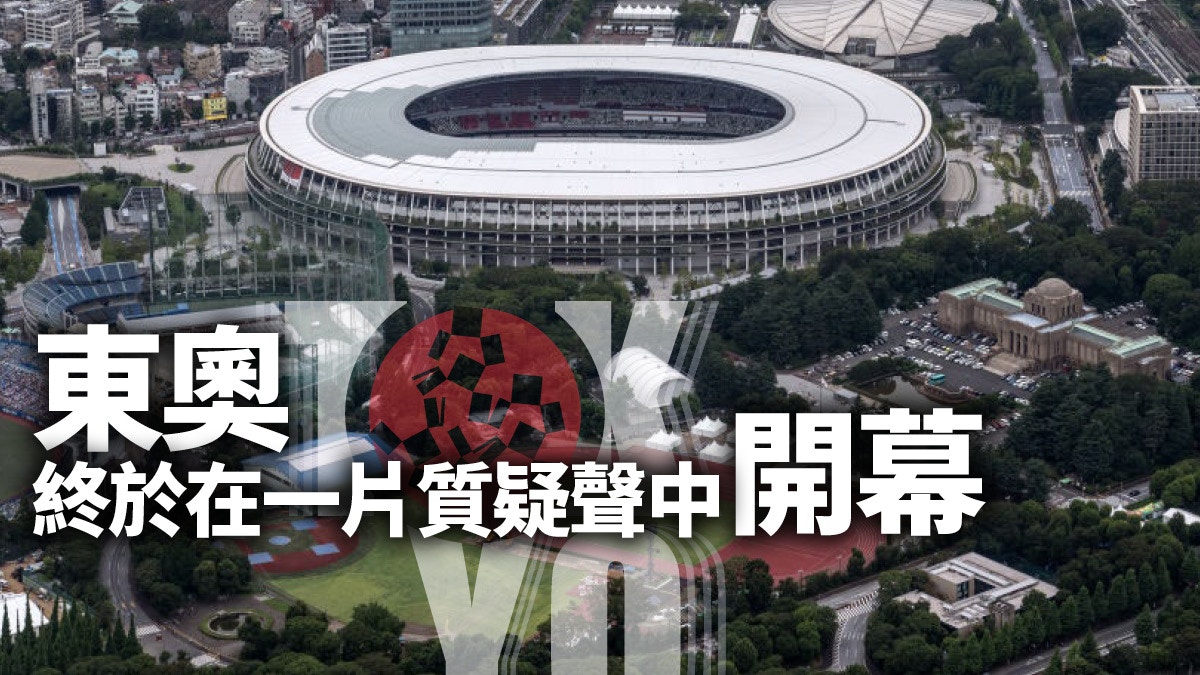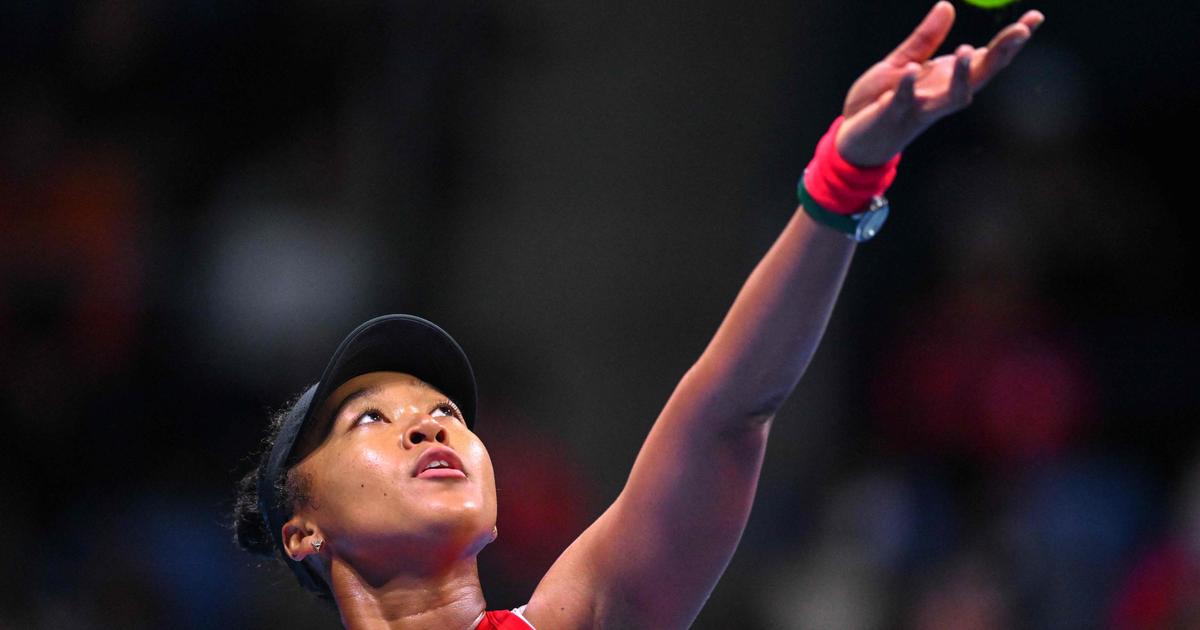Last Friday (July 23), the Tokyo Olympics finally successfully opened amidst controversy, avoiding the unfortunate experience of the cancellation of the Eastern Olympics in 1940.
The Tokyo Olympics can be regarded as twists and turns. First of all, last year was forced to postpone the event due to the new crown epidemic. Even this summer, the new crown epidemic has not subsided. The number of confirmed cases in Tokyo has repeatedly hit new highs in recent months. The call for the suspension of the Olympics has started in Japan It was finally held at the insistence of the Japanese government.
As we all know, in addition to allowing athletes from all over the world to compete for the championship, it is also an important opportunity for the host country to show its strength and attractiveness. Many countries and regions regard the ability to host the Olympics to be recognized by the international community.
In 2008, China successfully hosted the Beijing Olympics, which won a lot of recognition for the country.
Japan is an advanced and developed country. No one would doubt that it has enough material strength to host an impressive Olympic Games. However, it was counterproductive. A once-in-a-century epidemic completely overthrew these good expectations. The Japanese government's capital interests Toss and hesitate, lose proper governance and judgment ability.
After several twists and turns, the Tokyo Olympics finally officially opened on July 23.
(Associated Press)
Since the outbreak of the global epidemic last year, we have seen successively how the most advanced and developed countries in the past were panicked in responding to the epidemic.
The governments of countries such as Japan, the United Kingdom and the United States are vacillating between protecting the economy and controlling the epidemic, and there are no rules to fight the epidemic.
Even in countries with abundant medical resources in the world, millions of people have been infected and hundreds of thousands of people have died, many of which were lost to death due to insufficient medical equipment.
When the epidemic broke out last year, experts had long warned that the new crown epidemic would cause a pandemic. Unfortunately, the Japanese government seemed to be hiding its ears and not preventing the epidemic, and insisted on the Olympics.
Will be held as scheduled.
In the end, many countries have given up participation due to the epidemic, and with major outbreaks in major cities such as Tokyo, the Japanese government had to face the reality and announced the postponement of the Olympic Games until this year.
Although Japan is rich and advanced, it is in a hurry in case of epidemic
However, during this year, the Japanese government still has no point in dealing with the epidemic and the Olympics.
The ruling authorities wanted to host the Olympics, but they did not make long-term plans to control the epidemic. They hurriedly closed the city when the number of infections continued to rise, and lifted the blockade after a slight decline. However, society has no better means to control the spread. After the next release, the number of infections quickly rebounded shortly after.
As a result, over the past year or so, Japan has only repeated the cycle between declaring and removing the state of emergency, which is equivalent to wasting a year of preparations in vain.
Even shortly before the opening of the Olympics, the Japanese authorities' handling of the various details of the East Olympics is still unsatisfactory. For example, it is changed day and night as to whether to open the game for spectators. In order to please the sponsors, it is said that a maximum of 10,000 people are allowed to enter the stadium. I watched it, but when the epidemic worsened, I changed my words to play behind closed doors.
The reason why the Japanese government is swaying around in the fight against the epidemic is that its national governance is being hijacked by capitalists. In the face of extremely short-sighted capital interests, the ruling party loses its due position and is willing to take the lives of the people for the benefit of capitalists. Well-being is a bet.
The capitalists are afraid that the economic stagnation will affect their incomes, so they pressure the government to unblock them, and the sponsors, for their own benefit, hope that people will be allowed to enter the game.
These capitalists pretend that if the economy stops for too long, it will cause a large number of people to lose their jobs, and even bluntly say that they cannot give up the economy for the sake of the epidemic. However, the changes in the epidemic last year have proved that these short-sighted views are untenable.
The lack of a comprehensive plan to fight the epidemic has caused greater losses to the economy. On the contrary, the Chinese economy, which has worked together to control the epidemic, has performed even more outstandingly.
Eastern Olympics was held under the epidemic, but the Japanese government's arrangements were not satisfactory.
(Associated Press)
The current embarrassing situation in Dong'ao is both a natural disaster or a man-made disaster.
The once-in-a-century epidemic broke out in the year Tokyo hosted the Olympics. It was part of a natural disaster, and it was a "non-war crime" that was difficult to deal with for a while.
However, the Japanese government’s delay of more than one year wasted time and was helpless to deal with the epidemic. Even the vaccine delivery rate has been lagging far behind other advanced regions. This is a real human error.
It can be said that the epidemic and the Olympics have brought profound lessons to all countries: no matter how rich and blessed a society is, if those in power do not give full play to their functions and do a good job of governance when facing problems, then no matter how much resources are needed The outcome of the failure cannot be changed before; on the contrary, if the ruling party can give full play to the ability of governance, the situation can be reversed even in the face of unfavorable conditions.
Those in power in Hong Kong should also understand this truth.
Although Hong Kong has a prosperous society, a successful track record, and a special status, this is not enough to guarantee the long-term stability of Hong Kong.
Those in power must understand that if they do not govern properly, they can also make Hong Kong "failure" and eventually become a "failed city" like the so-called "failed state" in the West.
Governance is the key to success. Deep problems cannot be avoided
To govern well, those in power must first correct their mentality and stand, and understand that they should serve the people as a whole and not only the capitalists.
Of course, people’s well-being cannot ignore economic development, and the correct and effective use of capital can improve people’s lives, but this does not mean that governance has to be tilted towards capital or even threatened by capital.
Take the new crown epidemic as an example. How can the short-sighted use of people's lives as economic bets be called governance?
Those in power must have a foresight, know what kind of governance is best for the society as a whole, and balance the demands and pressures of capital, rather than just being led by them.
Since the reunification of the Hong Kong government, its governance has been directed towards big capitalists, unable to benefit the general public. After the anti-revision demonstrations and the outbreak of the new crown epidemic, the deep-seated structural problems accumulated in society have been exposed, such as excessive housing prices and the disappearance of the social mobility ladder. , The disparity in poverty continues to increase, etc.
Therefore, when it comes to the governance of Hong Kong, we must first resolve deep-seated contradictions. To resolve these deep-seated problems, we must first understand what the overall interests of society are.
In the face of vested interests such as capital, the government must have its own plans and goals. It must give spearhead benefits when it should be given benefits, and must deal with it tough when it should be tough.
Although the Hong Kong Government launched a job-guarantee program last year, some people questioned that the subsidy had not reached the people in need.
(Photo by Zheng Zifeng)
A very obvious example is that the Government launched the Employment Guarantee Program last year. The subsidies for the first and second phases have already cost nearly 90 billion yuan, but how much subsidy falls on the people in need?
The government's plan ignores the differences in industry needs. Some companies that are not affected by the epidemic and even increase their business "adversity" have also received funding, and even after taking the money, they will increase their dividends, so that shareholders can benefit from it.
For example, policies such as raising the minimum wage and increasing statutory labor holidays have often failed to adopt a plan that is fairer to wage earners.
In the final analysis, officials are accustomed to the "popularity" of the colonial era and even fearing the thinking of big businessmen, rather than relying on the greatest well-being of the general public.
Of course, it is not easy to break these relationships. Tung Chee-hwa, Tsang Yin-quan, Leung Chun-ying, and Carrie Lam all came to power and claimed to reform society. They did introduce some policies, but the final result was unsatisfactory.
Japanese Prime Minister Yoshihide Suga said in response to whether to continue hosting the Olympics, he said that "giving up is the easiest thing, but the role of the government is to be brave to challenge."
Although Japan's insistence on running the East Olympics is obviously not because of brave challenges, but just helplessness, the meaning of this sentence is still worthy of Hong Kong's rulers to chew.
In the past, many Hong Kong officials held the mentality that more is not as good as less about the many complex issues in Hong Kong, or just made some minor repairs; senior administrative officials have passed the current situation, but the problem is not "exploded" in their duties. I chose the "easiest" way.
Therefore, to do the first step in governance, Hong Kong’s rulers must no longer evade difficult problems and have the courage to uproot all kinds of problems.
Hong Kong has many innate advantages and the support of the central government. As long as politicians dare to promote reforms locally, they will be able to get out of the current social predicament.
Please pay attention to the 275th "Hong Kong 01" weekly electronic report published on July 26, 2021. You can also
click here to
sample the weekly e-newsletter and read more in-depth reports.















